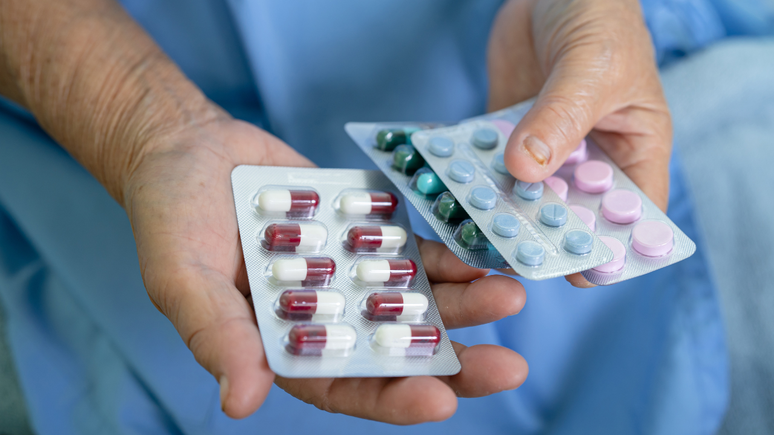Experts point out that, on hot days, some drugs can increase body temperature, causing serious pathologies.
On hot days, the body goes through a series of processes that involve increased blood flow to the skin and sweating to maintain a healthy temperature. Experts point out, however, that this natural regulation can be influenced by the action of some drugs, causing serious health problems.
“In extreme heat waves, when thermometers exceed 5°C above the average maximum for the region for four consecutive days, there is a risk that patients in the vulnerable group (elderly, people with chronic diseases and children) will suffer from hyperthermia. This occurs when the body temperature exceeds 40°C, increasing the risk of developing neurocirculatory collapse. This condition is very serious and has a high mortality rate,” said the clinical doctor Henry Grunspunin an interview with “Einstein Agency”.
What are the most dangerous drugs?
According to operators, the main risk is linked to diuretic drugs, present in the routine of those suffering from high blood pressure and kidney problems. This is because these drugs increase sensitivity to heat, causing a sudden drop in blood pressure and fainting.
Also, metformin and inhibitors SGLT2used to control diabetes, it can also be dangerous. These remedies, according to experts, stimulate the loss of fluids from the body and, therefore, increase the risk of dehydration. In these cases it is important to pay even more attention, as the drugs often mask the symptoms of hyperthermia and even influence insulin production.
Drugs to regulate blood pressure and fight other heart diseases, in turn, pose similar threats, due to inhibiting the desire to consume fluids. Furthermore, they interfere with the dilation of blood vessels, contributing to heat retention.
The same happens with patients being treated for psychiatric and neurological disorders. “The effect in these situations is twofold: it reduces sweating and thirst. The less you sweat, the lower the heat dissipation. Furthermore, the lower perception of thirst leads to an insufficient exchange of fluids, which further reduces the ability to sweat and increases the risk of dehydration”, explained the pharmacist Amouni Mourad.
On the other hand, other drugs, such as anticholinergics and quetiapine, used for control Parkinson and concentration disorders, act by raising body temperature. Doctors point out that there are conditions that, in themselves, increase the feeling of heat, in the case of attention deficit hyperactivity disorder (ADHD).
Find out how to preserve your health
However, professionals contraindicate stopping treatments without proper medical advice. Instead, they recommend watching for signs of hyperthermia, especially in the elderly, psychiatric patients and children, during the hottest days.
Furthermore, they recommend taking specific treatments to prevent the condition and ensure that the medications work fully. “It is necessary to keep environments ventilated, constantly hydrate and avoid prolonged exposure to the sun”, Grunspun advised.
Source: Terra
Ben Stock is a lifestyle journalist and author at Gossipify. He writes about topics such as health, wellness, travel, food and home decor. He provides practical advice and inspiration to improve well-being, keeps readers up to date with latest lifestyle news and trends, known for his engaging writing style, in-depth analysis and unique perspectives.








